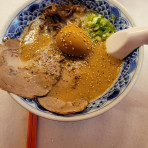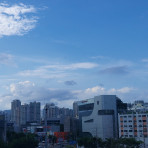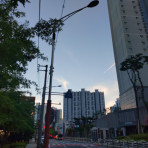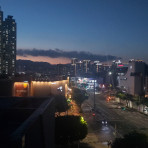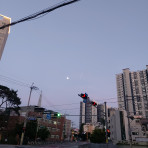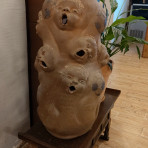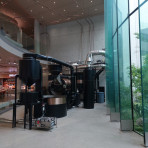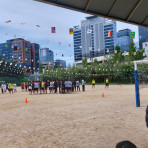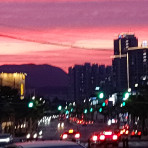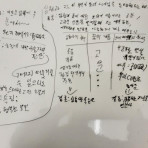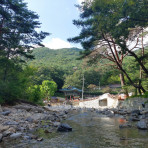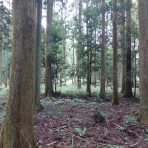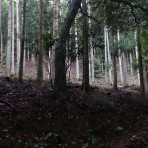Smugglers harvest ‘yellow vine,’ possibly to make drugs in Cambodia
본문
Mon, 26 Feb 2024 16:08:35 -0500

Smugglers are sneaking into a Cambodian national park to harvest so-called “yellow vine,” possibly to sell in Laos as raw materials for illegal drug manufacturing, residents told Radio Free Asia.
Virachey National Park in northeastern Cambodia is already threatened by illegal logging, but yellow vine, which can be used for herbal remedies but is also believed to be a precursor for making the drug ecstasy or MDMA, is another valuable commodity.
Those collecting it often don’t even know what it is for, but those who run the yellow vine trade seem to want to keep things quiet.
In 2012, Chut Wutty, a prominent Cambodian environmentalist was shot to death after taking photos of harvested vines near a processing factory.
According to Cambodia’s forest law, which went into effect in 2002, those convicted of processing yellow vine, which is the commonly used name of the woody climber Coscinium fenestratum, can be sentenced to between five and 10 years in prison.
Sometimes smugglers will drive trucks into the forest to harvest the vines. They also buy yellow vine from residents who live near the national park, a resident who refused to be named for safety reasons told RFA Khmer.
Baing Chhreap, a villager who himself has harvested vines, said he can sell them for 500 riel per kilogram (5 U.S. cents per pound). He said that harvesting in the national park is not punished because local authorities are colluding with businesses.
But he also said that those who harvest have no idea who their buyers are selling to.
‘Too busy to worry about it’
Chan Srouy, chief of the Sekong Commune near the national park, said he was aware that the vines are harvested but has no idea who the ringleaders are.
“I am very busy with the election,” he said, referring to weekend Senate elections. “I haven’t got time to visit the villages. You can talk with authorities.”
Ly Chandaravuth, an activist with the Mother Nature environmentalist group, said he is concerned that the middlemen sell the vines for illegal drug production. He urged authorities to immediately take action against the vine smuggling.
“I am concerned that yellow vines are smuggled to Laos,” he said. “I suspect the vines are being used to produce illegal drugs and will be imported back to Cambodia. We have wasted millions of dollars and human resources on drug related issues.”
Stung Treng Provincial spokesman Meng Kong said authorities have constantly cracked down on illegal smuggling and are investigating suspects to be brought to justice.
“We have detained many trucks and taken action according to the law,” he said. “In case there are more suspects we will take actions against them. I’ve received the information and are investigating.”
Am Sam Ath of the Cambodian League for the Promotion and Defense of Human Rights said the government should take immediate action against the illegal yellow vine trade.
Translated by Samean Yun. Edited by Eugene Whong and Malcolm Foster.
Smugglers are sneaking into a Cambodian national park to harvest so-called “yellow vine,” possibly to sell in Laos as raw materials for illegal drug manufacturing, residents told Radio Free Asia.
Virachey National Park in northeastern Cambodia is already threatened by illegal logging, but yellow vine, which can be used for herbal remedies but is also believed to be a precursor for making the drug ecstasy or MDMA, is another valuable commodity.
Those collecting it often don’t even know what it is for, but those who run the yellow vine trade seem to want to keep things quiet.
In 2012, Chut Wutty, a prominent Cambodian environmentalist was shot to death after taking photos of harvested vines near a processing factory.
According to Cambodia’s forest law, which went into effect in 2002, those convicted of processing yellow vine, which is the commonly used name of the woody climber Coscinium fenestratum, can be sentenced to between five and 10 years in prison.
Sometimes smugglers will drive trucks into the forest to harvest the vines. They also buy yellow vine from residents who live near the national park, a resident who refused to be named for safety reasons told RFA Khmer.
Baing Chhreap, a villager who himself has harvested vines, said he can sell them for 500 riel per kilogram (5 U.S. cents per pound). He said that harvesting in the national park is not punished because local authorities are colluding with businesses.
But he also said that those who harvest have no idea who their buyers are selling to.
‘Too busy to worry about it’
Chan Srouy, chief of the Sekong Commune near the national park, said he was aware that the vines are harvested but has no idea who the ringleaders are.
“I am very busy with the election,” he said, referring to weekend Senate elections. “I haven’t got time to visit the villages. You can talk with authorities.”
Ly Chandaravuth, an activist with the Mother Nature environmentalist group, said he is concerned that the middlemen sell the vines for illegal drug production. He urged authorities to immediately take action against the vine smuggling.
“I am concerned that yellow vines are smuggled to Laos,” he said. “I suspect the vines are being used to produce illegal drugs and will be imported back to Cambodia. We have wasted millions of dollars and human resources on drug related issues.”
Stung Treng Provincial spokesman Meng Kong said authorities have constantly cracked down on illegal smuggling and are investigating suspects to be brought to justice.
“We have detained many trucks and taken action according to the law,” he said. “In case there are more suspects we will take actions against them. I’ve received the information and are investigating.”
Am Sam Ath of the Cambodian League for the Promotion and Defense of Human Rights said the government should take immediate action against the illegal yellow vine trade.
Translated by Samean Yun. Edited by Eugene Whong and Malcolm Foster.
자유아시아방송 제공 및 저작권 소유 | RFA provided and copyrighted -www.rfa.org

Smugglers are sneaking into a Cambodian national park to harvest so-called “yellow vine,” possibly to sell in Laos as raw materials for illegal drug manufacturing, residents told Radio Free Asia.
Virachey National Park in northeastern Cambodia is already threatened by illegal logging, but yellow vine, which can be used for herbal remedies but is also believed to be a precursor for making the drug ecstasy or MDMA, is another valuable commodity.
Those collecting it often don’t even know what it is for, but those who run the yellow vine trade seem to want to keep things quiet.
In 2012, Chut Wutty, a prominent Cambodian environmentalist was shot to death after taking photos of harvested vines near a processing factory.
According to Cambodia’s forest law, which went into effect in 2002, those convicted of processing yellow vine, which is the commonly used name of the woody climber Coscinium fenestratum, can be sentenced to between five and 10 years in prison.
Sometimes smugglers will drive trucks into the forest to harvest the vines. They also buy yellow vine from residents who live near the national park, a resident who refused to be named for safety reasons told RFA Khmer.
Baing Chhreap, a villager who himself has harvested vines, said he can sell them for 500 riel per kilogram (5 U.S. cents per pound). He said that harvesting in the national park is not punished because local authorities are colluding with businesses.
But he also said that those who harvest have no idea who their buyers are selling to.
‘Too busy to worry about it’
Chan Srouy, chief of the Sekong Commune near the national park, said he was aware that the vines are harvested but has no idea who the ringleaders are.
“I am very busy with the election,” he said, referring to weekend Senate elections. “I haven’t got time to visit the villages. You can talk with authorities.”
Ly Chandaravuth, an activist with the Mother Nature environmentalist group, said he is concerned that the middlemen sell the vines for illegal drug production. He urged authorities to immediately take action against the vine smuggling.
“I am concerned that yellow vines are smuggled to Laos,” he said. “I suspect the vines are being used to produce illegal drugs and will be imported back to Cambodia. We have wasted millions of dollars and human resources on drug related issues.”
Stung Treng Provincial spokesman Meng Kong said authorities have constantly cracked down on illegal smuggling and are investigating suspects to be brought to justice.
“We have detained many trucks and taken action according to the law,” he said. “In case there are more suspects we will take actions against them. I’ve received the information and are investigating.”
Am Sam Ath of the Cambodian League for the Promotion and Defense of Human Rights said the government should take immediate action against the illegal yellow vine trade.
Translated by Samean Yun. Edited by Eugene Whong and Malcolm Foster.
Smugglers are sneaking into a Cambodian national park to harvest so-called “yellow vine,” possibly to sell in Laos as raw materials for illegal drug manufacturing, residents told Radio Free Asia.
Virachey National Park in northeastern Cambodia is already threatened by illegal logging, but yellow vine, which can be used for herbal remedies but is also believed to be a precursor for making the drug ecstasy or MDMA, is another valuable commodity.
Those collecting it often don’t even know what it is for, but those who run the yellow vine trade seem to want to keep things quiet.
In 2012, Chut Wutty, a prominent Cambodian environmentalist was shot to death after taking photos of harvested vines near a processing factory.
According to Cambodia’s forest law, which went into effect in 2002, those convicted of processing yellow vine, which is the commonly used name of the woody climber Coscinium fenestratum, can be sentenced to between five and 10 years in prison.
Sometimes smugglers will drive trucks into the forest to harvest the vines. They also buy yellow vine from residents who live near the national park, a resident who refused to be named for safety reasons told RFA Khmer.
Baing Chhreap, a villager who himself has harvested vines, said he can sell them for 500 riel per kilogram (5 U.S. cents per pound). He said that harvesting in the national park is not punished because local authorities are colluding with businesses.
But he also said that those who harvest have no idea who their buyers are selling to.
‘Too busy to worry about it’
Chan Srouy, chief of the Sekong Commune near the national park, said he was aware that the vines are harvested but has no idea who the ringleaders are.
“I am very busy with the election,” he said, referring to weekend Senate elections. “I haven’t got time to visit the villages. You can talk with authorities.”
Ly Chandaravuth, an activist with the Mother Nature environmentalist group, said he is concerned that the middlemen sell the vines for illegal drug production. He urged authorities to immediately take action against the vine smuggling.
“I am concerned that yellow vines are smuggled to Laos,” he said. “I suspect the vines are being used to produce illegal drugs and will be imported back to Cambodia. We have wasted millions of dollars and human resources on drug related issues.”
Stung Treng Provincial spokesman Meng Kong said authorities have constantly cracked down on illegal smuggling and are investigating suspects to be brought to justice.
“We have detained many trucks and taken action according to the law,” he said. “In case there are more suspects we will take actions against them. I’ve received the information and are investigating.”
Am Sam Ath of the Cambodian League for the Promotion and Defense of Human Rights said the government should take immediate action against the illegal yellow vine trade.
Translated by Samean Yun. Edited by Eugene Whong and Malcolm Foster.
좋아요1
이 글을 좋아요하셨습니다
관련링크
등록된 댓글이 없습니다.

